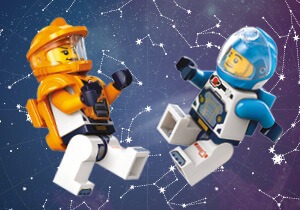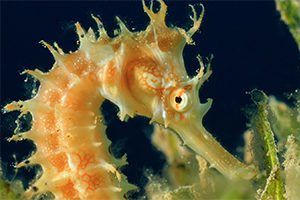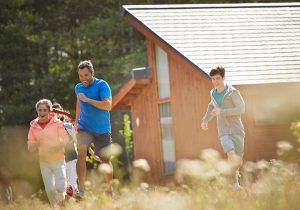
Cleopatra Primary Resource
Learn about the life of the last pharaoh of Ancient Egypt!
This primary resource introduces children to Cleopatra in a fun, educational comic. Learn about the life of the last Egyptian pharaoh. How old was Cleopatra when she ruled over Egypt? Who were her political enemies? Did Cleopatra have children? How did Cleopatra die?
In our National Geographic Kids primary resource sheet, pupils will discover the significant events that occurred during Cleopatra’s lifetime, and learn about her role as pharaoh of Ancient Egypt.
The teaching resource can be used in study group tasks for a simple overview of the life of Cleopatra, and for discussion about Ancient Egyptian history as a whole. It can be used as a printed handout for each pupil to read themselves, or for display on the interactive whiteboard, as part of a whole class reading exercise.
Activity: print off the comic for each pupil to read through, individually or in groups. Once they’re familiar with the key events in Cleopatra’s life, get them to cut out the squares of the comic and see if they can piece it back together in the correct order. Alternatively, use the resource to create Cleopatra Quiz – give the pupils key items, people or buzz words from the comic, and ask them to say how they relate to the life of cleopatra (e.g. snake, carpet, Mark Anthony, pearl, Actium).
N.B. The following information for mapping the resource documents to the school curriculum is specifically tailored to the English National Curriculum and Scottish Curriculum for Excellence. We are currently working to bring specifically tailored curriculum resource links for our other territories; including South Africa, Australia and New Zealand. If you have any queries about our upcoming curriculum resource links, please email: schools@ngkids.co.uk
This History primary resource assists with teaching the following History objectives from the National Curriculum:
- I know and understand significant aspects of the history of the wider world: the nature of ancient civilisations; the expansion and dissolution of empires; characteristic features of past non-European societies; achievements and follies of mankind
- Gain and deploy a historically grounded understanding of abstract terms such as ‘empire’, ‘civilisation’, ‘parliament’ and ‘peasantry’
- Gain historical perspective by placing their growing knowledge into different contexts, understanding the connections between local, regional, national and international history; between cultural, economic, military, political, religious and social history; and between short- and long-term timescales.
National Curriculum Key Stage 1 History objective:
- Pupils should be taught: the lives of significant individuals in the past who have contributed to national and international achievements.
National Curriculum Key Stage 2 History objective:
- Pupils should be taught about: the achievements of the earliest civilisations – an overview of where and when the first civilisations appeared and a depth study of one of the following: Ancient Sumer; The Indus Valley; Ancient Egypt; The Shang Dynasty of Ancient China
This primary resource also assists with teaching the following English objectives from the National Curriculum:
- Comprehension skills develop through pupils’ experience of high-quality discussion with the teacher, as well as from reading and discussing a range of stories, poems and non-fiction. All pupils must be encouraged to read widely across both fiction and non-fiction to develop their knowledge of themselves and the world in which they live, to establish an appreciation and love of reading, and to gain knowledge across the curriculum
This History primary resource assists with teaching the following Social Studies First level objective from the Scottish Curriculum for Excellence:
- Having selected a significant individual from the past, I can contribute to a discussion on the influence of their actions, then and since
Scottish Curriculum for Excellence Second level Social Studies objective:
- I can use primary and secondary sources selectively to research events in the past.
- I can discuss why people and events from a particular time in the past were important, placing them within a historical sequence
- I can compare and contrast a society in the past with my own and contribute to a discussion of the similarities and differences
Scottish Curriculum for Excellence Third level Social Studies objective:
- I can describe the factors contributing to a major social, political or economic change in the past and can assess the impact on people’s lives.
- I can discuss the motives of those involved in a significant turning point in the past and assess the consequences it had then and since.
- Through researching, I can identify possible causes of a past conflict and report on the impact it has had on the lives of people at that time.
Scottish Curriculum for Excellence Fourth level Social Studies objective:
- I can make reasoned judgements about how the exercise of power affects the rights and responsibilities of citizens by comparing a more democratic and a less democratic society.
- I have investigated a meeting of cultures in the past and can analyse the impact on the societies involved.
- I can assess the impact for those involved in a specific instance of the expansion of power and influence in the past.
Download primary resource
More Like

Learn about cool constellations with The LEGO® Group!

Seahorse facts!

Win £500 worth of Forest Holiday vouchers!









LEAVE A COMMENT
THANK YOU
Your comment will be checked and approved shortly.
WELL DONE,
YOUR COMMENT
HAS BEEN ADDED!
COMMENTS
CUSTOMIZE YOUR AVATAR